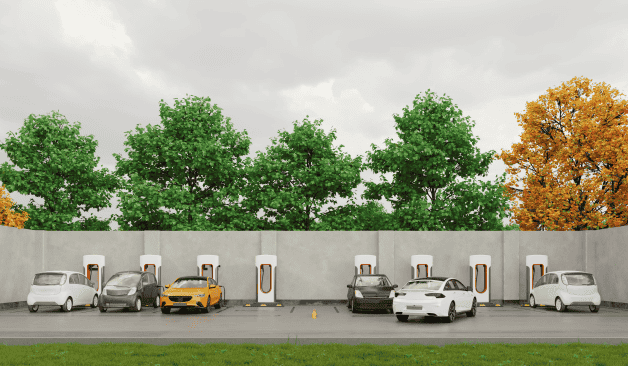
What is driving the EV adoption in India?
We can understand consumer behavior and conclude how an industry will shape up. Products and services are launched every day. Some become the talk of the town and become part of life, while others die after initial success. In recent years, India has witnessed a surge in the adoption of electric vehicles (EVs), marking a significant shift towards cleaner and more sustainable transportation. The vital question is - what is driving this trend? We try to answer this question in this article.
The Numbers: Global and India
Before we get to the details, let us look at the future expectations from EVs in India and globally. How do we do that? We need to look at the expected growth number. The global EV sector is expected to increase at a strong double-digit of 15.9% up to 2035. It is expected to reach 51.5 million units by then. India is also seeing remarkable transformation.
In India, the EV registration was only 1.25 lakh units, and it increased to 10.25 lakh units in 2023 - 9X growth. As per the Economic Survey, the sector is expected to grow by 49% between 2022 and 2030. And it will have 1 crore units of annual sales by 2030.
Let us understand what is driving the current growth. Based on your understanding, you can evaluate if these can be sustained, and if these projections can become reality.
Factors driving EV adoption
Here are the factors that are driving EV adoption in India:
Consumer Preferences
One of the major factors propelling the adoption of EVs in India is growing awareness about environmental issues. Traditional vehicles powered by fossil fuels contribute to air pollution and greenhouse gas emissions, which have adverse effects on public health and the environment. EVs offer a cleaner alternative, emitting zero tailpipe emissions and helping to reduce pollution levels.
You may be amazed to know that EVs are finding higher adoption among women. They are attracted by the convenience, safety, and advanced features - one in every four EVs is under their name.
Government Initiatives
The Indian government has been actively promoting the adoption of EVs through various initiatives and policies. It has a target of a 45% reduction in emissions intensity by 2030. This will require efforts, and the policies have to contribute to this transformative journey. It includes subsidies and incentives for EV buyers, tax benefits, and investment in charging infrastructure. Additionally, the government has set ambitious targets for electrifying the country's transportation sector, further incentivizing manufacturers and consumers to embrace EVs. Charging station's availability among states like Delhi, Karnataka, and Maharashtra indicates infrastructure support.
In the recent budget, FM announced the government’s plan to expand and strengthen the EV ecosystem by supporting manufacturing and charging infrastructure.
Cost Savings
While the initial cost of purchasing an EV may be higher than that of a traditional vehicle, EV owners can benefit from significant cost savings in the long run. EVs have lower operating and maintenance costs since they require fewer parts and less frequent servicing compared to internal combustion engine vehicles. Moreover, with the rising prices of fossil fuels, EVs offer a more economical option for consumers, especially in the long term.
Technological Advancements
Advances in battery technology have played a crucial role in driving the adoption of EVs. Lithium-ion batteries, which power most EVs, have become more affordable and efficient, leading to increased driving range. Also, innovations around fast-charging stations are game-changers both for the user and the companies. Also, home charging options are giving flexibility - and encouraging EV ownership. As battery technology continues to improve, EVs are becoming more practical and appealing to a wider range of consumers.
Urban Mobility Solutions
In congested urban areas, EVs offer a solution to alleviate traffic congestion and reduce noise pollution. Many cities in India are grappling with worsening air quality and traffic congestion, making EVs an attractive option for urban commuters. Governments and city planners are increasingly promoting electric mobility solutions as part of efforts to create cleaner and more livable cities.
To sum up
The combination of all the above factors is driving the rapid adoption of electric vehicles in India. As EV technology continues to evolve and become more accessible, it holds the potential to revolutionize India's transportation sector and contribute to a cleaner and more sustainable future.










